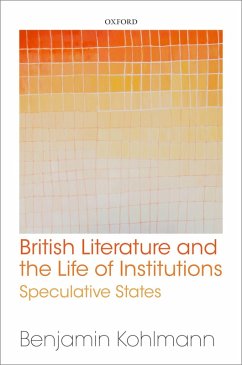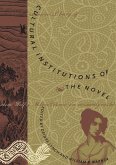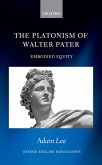British Literature and the Life of Institutions charts a literary prehistory of the welfare state in Britain around 1900, but it also marks a major intervention in current theoretical debates about critique and the dialectical imagination. By placing literary studies in dialogue with political theory, philosophy, and the history of ideas, the book reclaims a substantive reformist language that we have ignored to our own loss. This reformist idiom made it possible to imagine the state as a speculative and aspirational idea-as a fully realized form of life rather than as an uninspiring ensemble of administrative procedures and bureaucratic processes. This volume traces the resonances of this idiom from the Victorian period to modernism, ranging from Mary Augusta Ward, George Gissing, and H. G. Wells, to Edward Carpenter, E. M. Forster, and Virginia Woolf. Compared to this reformist language, the economism that dominates current debates about the welfare state signals an impoverishment that is at once intellectual, cultural, and political. Critiquing the shortcomings of the welfare state comes naturally to us, but we often struggle to offer up convincing defences of its principles and aims. This book intervenes in these debates by urging a richer understanding of critique: if we want to defend the state, Kohlmann argues, we need to learn to think about it again.
Dieser Download kann aus rechtlichen Gründen nur mit Rechnungsadresse in A, B, BG, CY, CZ, D, DK, EW, E, FIN, F, GR, HR, H, IRL, I, LT, L, LR, M, NL, PL, P, R, S, SLO, SK ausgeliefert werden.









